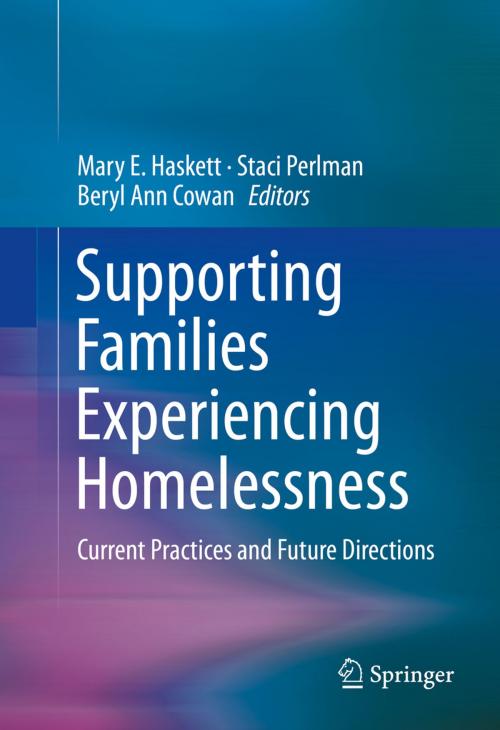Supporting Families Experiencing Homelessness
Current Practices and Future Directions
Nonfiction, Social & Cultural Studies, Social Science, Social Work, Health & Well Being, Psychology, Clinical Psychology, Medical| Author: | ISBN: | 9781461487180 | |
| Publisher: | Springer New York | Publication: | November 8, 2013 |
| Imprint: | Springer | Language: | English |
| Author: | |
| ISBN: | 9781461487180 |
| Publisher: | Springer New York |
| Publication: | November 8, 2013 |
| Imprint: | Springer |
| Language: | English |
Homelessness among families with children in the U.S. is rising rapidly due to the economic downturn. Supporting Homeless Families: Current Practices and Future Directions aims to raise the standard of services provided to families without homes through practices that are strengths-based and culturally competent. This book provides a contextual overview of family homelessness. An ecological and developmental framework for understanding the implications of homelessness from infancy through adulthood are presented with reference to existing research. The book also addresses innovative designs for providing collaboration between and among diverse services that interface with families experiencing homelessness. In doing so, the importance of providing families with culturally competent services that support them during episodes of homelessness as well as the period of re-housing are addressed. Examples of empirically proven interventions and best practices are showcased, and roadblocks to success and sustainability are discussed.
Homelessness among families with children in the U.S. is rising rapidly due to the economic downturn. Supporting Homeless Families: Current Practices and Future Directions aims to raise the standard of services provided to families without homes through practices that are strengths-based and culturally competent. This book provides a contextual overview of family homelessness. An ecological and developmental framework for understanding the implications of homelessness from infancy through adulthood are presented with reference to existing research. The book also addresses innovative designs for providing collaboration between and among diverse services that interface with families experiencing homelessness. In doing so, the importance of providing families with culturally competent services that support them during episodes of homelessness as well as the period of re-housing are addressed. Examples of empirically proven interventions and best practices are showcased, and roadblocks to success and sustainability are discussed.















